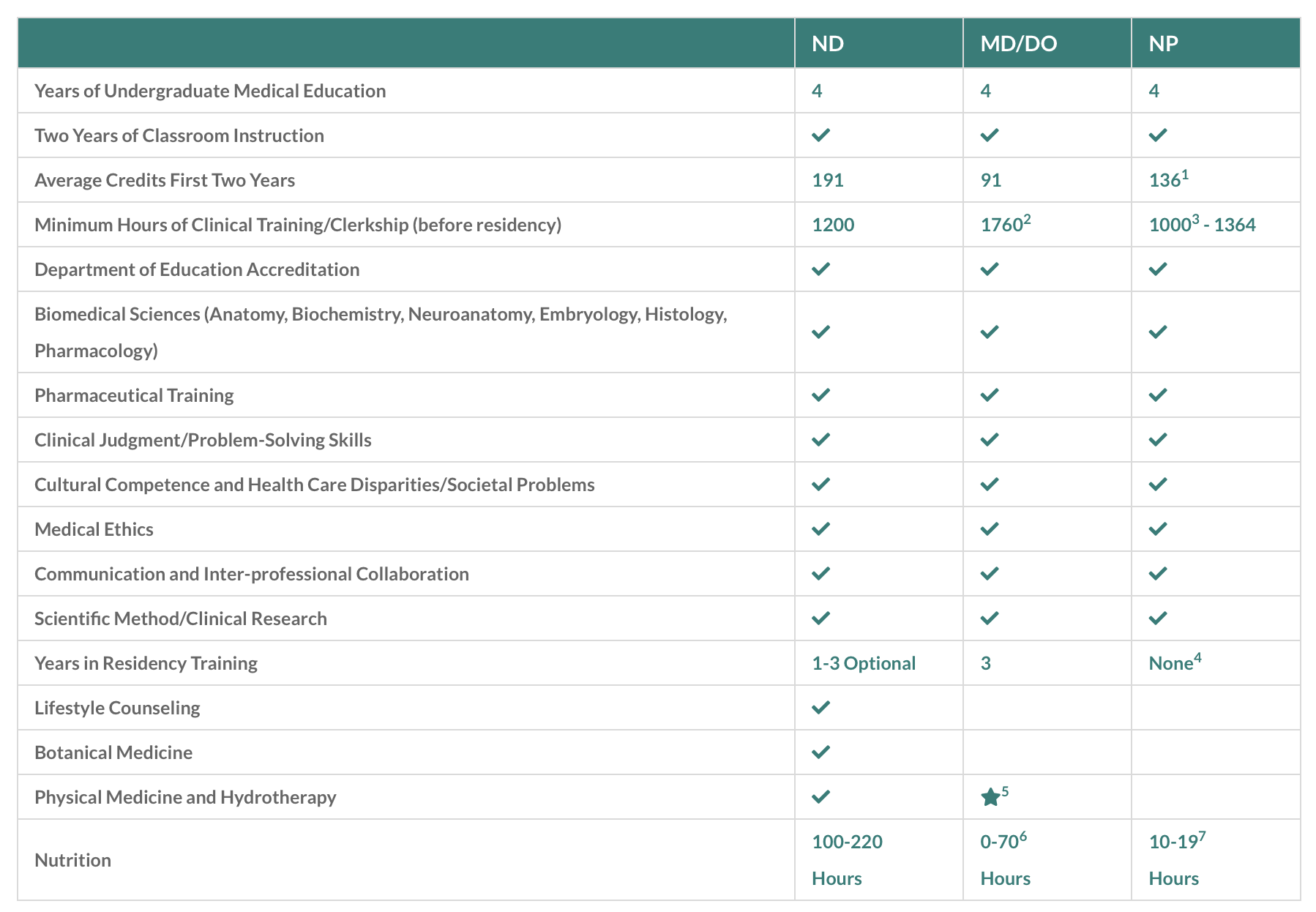Naturopathic medicine is a distinct health care profession that combines the wisdom of nature with the rigors of modern science.
Naturopathic doctors (ND) go to Naturopathic medical school (in person, not an online program) and are trained as primary care providers who diagnose, treat and manage patients with acute and chronic conditions. They do this while addressing disease and dysfunction at the level of body, mind and spirit. Naturopathic medicine is not exactly the same as functional, alternative, or complimentary medicine but those terms are often used interchangeably.
Is Naturopathic Medicine the same as Functional Medicine?
Naturopathic Doctors are the original functional medicine practitioners.
In fact, NDs are considered the nation’s leading experts in preventive medicine and natural health care.
As people have demanded more holistic, patient-centered care, this has forced many conventional providers (MDs, DOs, PAs, and NPs) to expand upon their basic medical education to incorporate natural therapies, nutrition and functional testing to meet this demand.
All of these approaches are part of the standard naturopathic medical education that ND’s are trained in. Conventional practitioners have to seek additional medical education after graduation (often in weekend courses) in order to gain an understanding of a more natural approach to medicine, but their foundations for treatment are always built on pharmaceuticals and surgery. Naturopathic doctors are steeped in the holistic approach throughout their medical training.
The functional approach, similar to naturopathic medicine, is an integrative, science-based approach to health and healing that focuses on treating the underlying cause of disease.
Our education teaches us that each individual is biochemically unique and therefore each patient’s care is individually tailored to restore their structural, physiological and psychological balance.
How Naturopathic Medicine Works
We spend at least an hour with all new patients gathering as much information as we can, not only about the main issue that brings you in, but also about your diet, lifestyle and other conditions that may seem like they aren’t related to your health, but may very well play a contributory role to the main health issue(s) you’re concerned about.
You aren’t made up of separate, independent organs organized by medical subspecialties! Your body is one integrated whole and should be treated that way in order to achieve true health.
This is the future of medicine – our doctors spend time with you, listen, identify and address the root cause of illness. Sometimes this is straightforward while other times it may be very complex. Regardless, we’ll explain to you exactly what’s going on and what you can expect.
Naturopathic Medicine Principles
We are guided by these principles that inform everything we do:
Requirements/Coursework

1 Reflects NP didactic education spread throughout education years per California requirements, 270 credit hours over four years = 67.5 hours per year.
2 Minimum hours for median osteopathic college clerkship per 2018-2019 weeks of Clinical Clerkship Hours by Osteopathic Medical College from AACOM. There are no minimum clerkship hours required in LCME accredited medical schools.
3 Includes clinical hours from required registered nursing training. Clinical hours for NPs vary, 500 hours is the minimum requirement.
4 NP specialization occurs during education tracks.
5 Includes Osteopathic Manipulative Medicine only.
6 Overall, medical students received 19.6 contact hours of nutrition instruction during their medical school careers (range:0-70 hours); the average in 2004 was 22.3 hours.
7 Majority of NP programs with 10 to 19 clock hours of nutrition education.
